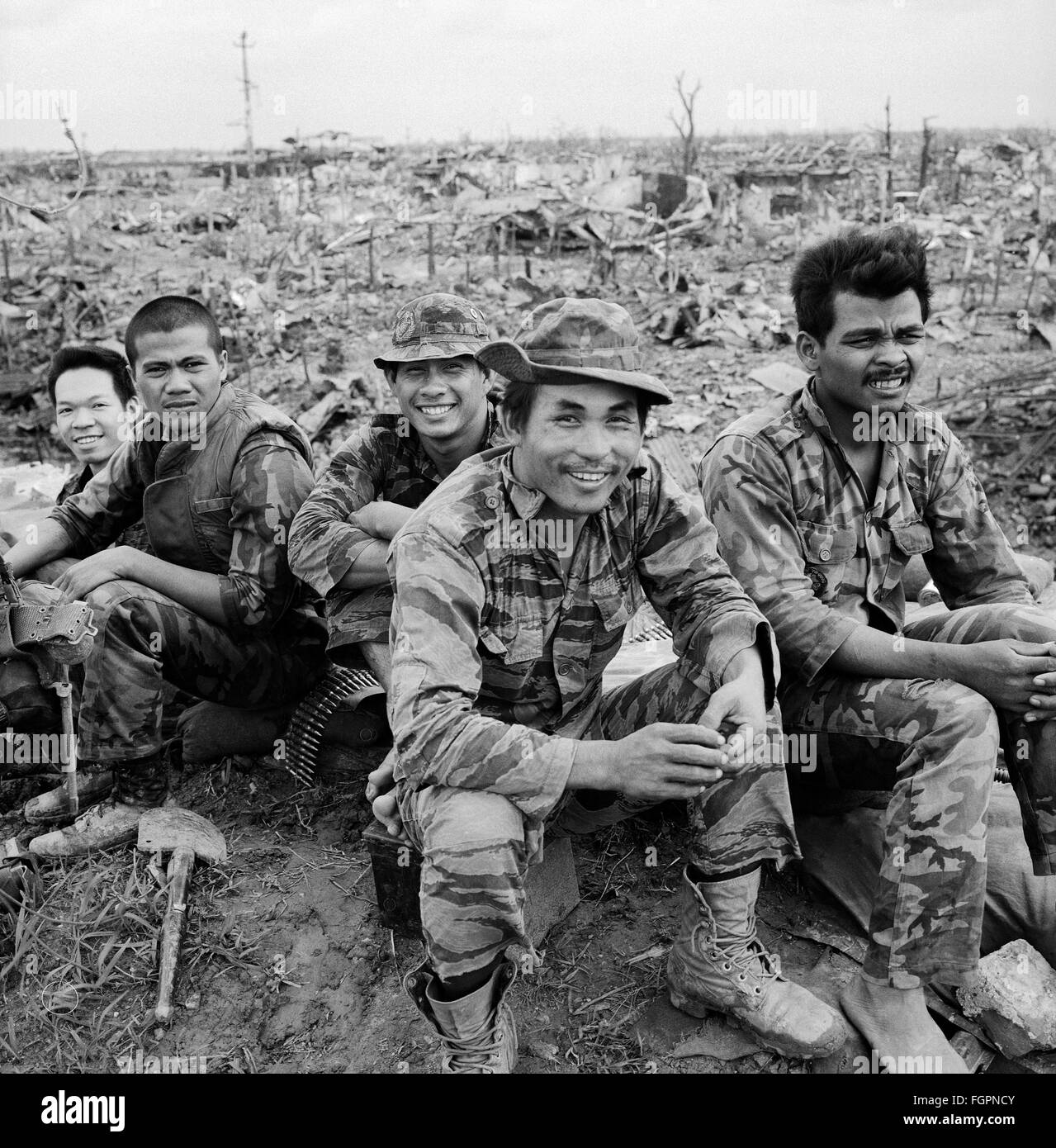Nguyen's piece sheds light on stories and narratives that have for so long been kept in the shadows. Whenever the war is discussed, it tends to only be from an American perspective, one which excludes the tremendous pain and suffering that many Vietnamese folx endured before, during, and post-war. When I began reading Chapter 5: Friendship and Sacrifice, I was immediately struck by one of the first introduction statements which stated that "One of the saddest aspects of war is the 'continual forming of real friendships which last for a week or two, or even months, and are then suddenly shattered forever by death or division." To me, this statement alone encompasses tremendous pain, suffering, and loss that must have been felt by Vietnamese soldiers throughout the war period. Another example from this chapter was from a military doctor, named Nguyen Manh Tien, who recounted that there was a "bond that glued the soldiers and the officers on the front line, because you lived together and protected each other, and died together" and he claims to this day this "bond has stayed with [him]". This illustrates the ever lasting, and almost scarring, effects that the war has had on so many people, yet many of the traumatic effects of the war on SEA communities is not considered in the U.S. narrative.
As I read through various people's recounts of their stories, it reminded me of a discussion we had last week in class, which also connected to concepts found in Yen Le Esperitu's book, regarding how the U.S. felt the need to "dehumanized, de-realized, [Vietnamese bodies] in order to allow for the humanization of the American soldier" (Esperitu 2014). When reading through the various accounts and stories which Nguyen beautifully collected and put together, one is able to see the raw and real stories behind the humans who were just as heavily affected by the war as the U.S. was. These are people who were to heavily affected that deserve to be heard and seen. It is because of this that I chose an image of many people from Vietnam during the war period. I wanted to present the faces of people to serve as a reminder that these are real people who are just like us and are just as deserving of having their voices heard and elevated.

A question I have for this upcoming week is how can we stand in solidarity and help elevate the voices of those who have for so long been silenced? In what ways can we help advocate and share these narratives with more folx so that they can become more widely known?
Sources:
Vietnam War, South-Vietnamese soldiers in the destroyed city Quang Tri, September 1972
Espiritu, Yen Le. Body Counts : The Vietnam War and Militarized Refugees, University of California Press, 2014. ProQuest Ebook Central
No comments:
Post a Comment